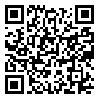Volume 14, Issue 56 (8-2020)
etiadpajohi 2020, 14(56): 287-312 |
Back to browse issues page
Department of Clinical Psychology, Islamic Azad University, Sanandaj Branch, Sanandaj, Iran
Abstract: (2858 Views)
Objective: The present study aimed to compare the effectiveness of cognitive-behavioral therapy and acceptance and commitment therapy on reducing dysfunctional attitudes and cognitive misconceptions in people with methadone maintenance treatment. Method: This was a quasi-experimental study using pretest-posttest with a control group. From all the people referred to Roozbeh substance abuse treatment center in Kamyaran in the first half of 2018, who were under methadone maintenance treatment, a sample of 30 people were selected by convenience sampling and were randomly placed into two experimental groups (n=20) and a control group (n=10). In order to collect data, dysfunctional attitudes and cognitive errors questionnaires were used and these questionnaires were completed by the participants of all three groups in the pre-test, post-test stages. The first and second experimental groups received cognitive-behavioral therapy and acceptance and commitment therapy, respectively, in 8 sessions of 60 minutes as collectively. Data were also analyzed by multivariate analysis of covariance. Results: The results showed that the mean scores of the dysfunctional attitude components including the need for others' approval and the need to satisfy others as well as the components of cognitive misconceptions such as mental filter, hasty conclusion, emotional reasoning, should-better, and personalization were significantly lower in both experimental groups than the control group. Also, the mean scores of success-perfectionism, all-or-nothing thinking, overgeneralization, and inattention in the acceptance and commitment treatment group were significantly lower than the two other groups. Conclusion: Acceptance and commitment therapy is more effective than cognitive-behavioral therapy in reducing dysfunctional attitudes and cognitive misconceptions.
Keywords: Cognitive-behavioral therapy, Acceptance and commitment therapy, Dysfunctional attitudes, Cognitive misconceptions, Methadone
Type of Study: Research |
Subject:
Special
Received: 2019/07/19 | Accepted: 2020/08/31 | Published: 2020/08/31
Received: 2019/07/19 | Accepted: 2020/08/31 | Published: 2020/08/31
| Rights and permissions | |
 |
This work is licensed under a Creative Commons Attribution-NonCommercial 4.0 International License. |



